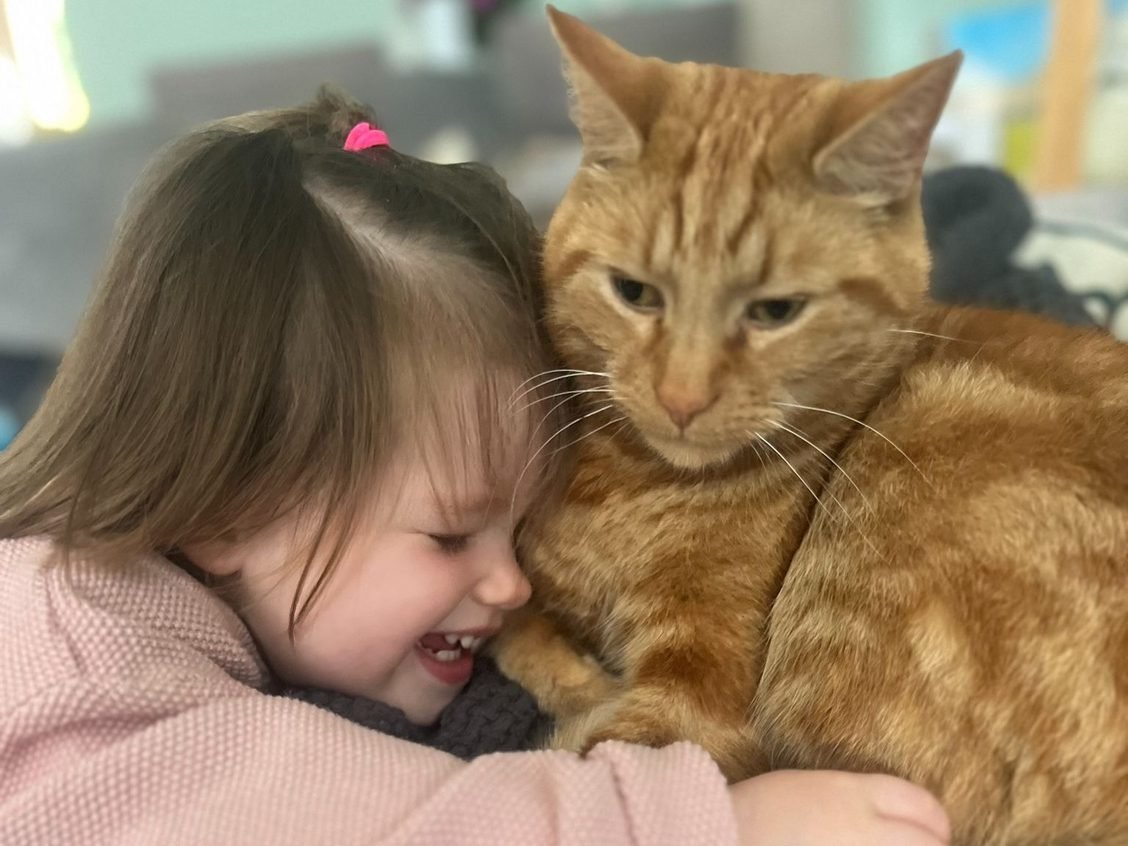Are your relationships getting the love they deserve? 🤔
The picture above is of my daughter Ophelia and our cat Cheeto. Don’t let the picture fool you….. There are many relational ruptures that happen between these two, and we are often supporting them to reconnect and rebuild their relationship! Read on to see how you can develop and repair the important relationships for you and your teams.
Taking Care of Relational Needs
As human beings, relationships are core to our ability to function well in life and work. Leaders must help all to recognise these needs rather than assuming the task alone is the priority. How much do you re-orientate yourself and your team to remember the web of relational needs everybody has and needs to be served? Under this text you can see the relational needs pyramid created as part of my research into what creates Positive Leadership. When we are fluent across these layers of needs’, relationships move to a positive state of ‘belongingness’ and family-like quality connections. This is where we can optimally perform.
The Necessity of Positive Relational Spirals
As leaders we can influence the positivity or the negativity in relationships greatly. For example, if any of the above “relational needs” or components of TRIBE (connection, high quality connections, and positive conflict) are missing or forgotten about we can consciously or unconsciously damage relationships - triggering a downward relational spiral (see below). This can happen through things that seem trivial such as holding or looking at your mobile whilst having conversations with colleagues. An increasingly common, detrimental, occurrence.
Repairing Relationship Ruptures
One thing coming up a lot in my practice with leaders at the moment are relationship ruptures in the workplace (interestingly we predicted this growing trend in our January newsletter). In the midst of geo-political turmoil and election fever, relationship strife can be high. The worst thing we can do in these instances is to brush over the situation, kick it down the road, or avoid the situation altogether. In my research I have found that the most productive way to manage these conflicts is to deliberately tune into the “Positive Relational Cycle” and lean into repair and renewal. Are there relationships in your team that aren’t as strong as they could be? What part could you play in supporting a repair of a rupture? This could make all the difference to your team performance.




